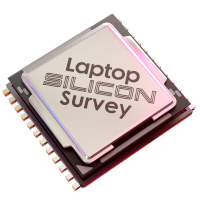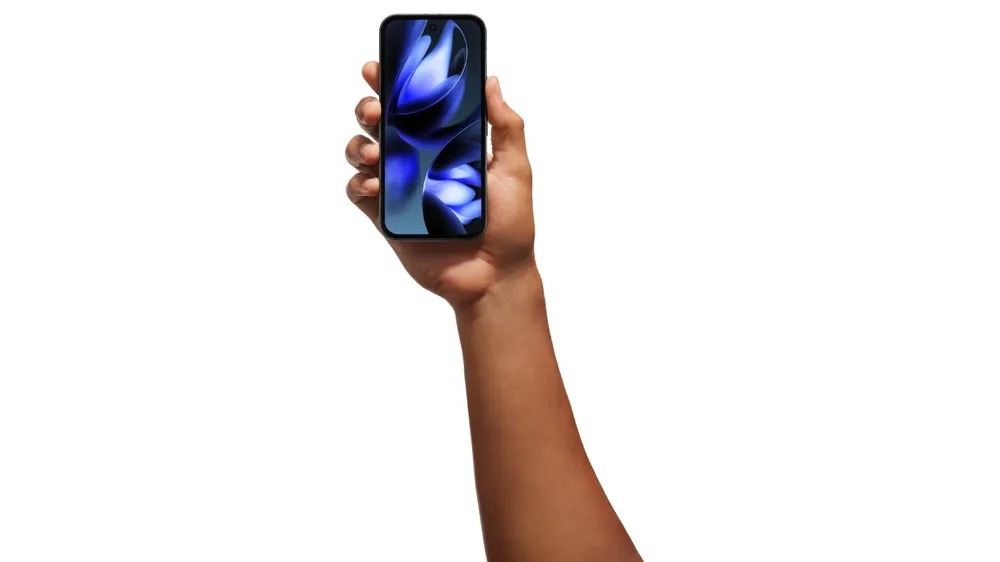"MediaTek is the number one provider of Arm-based Chromebooks": Adam King unpacks on the Chromebook boom

MediaTek’s chipsets power Lenovo’s Tab series, including the Lenovo Tab Plus, several Chromebooks like the Lenovo Chromebook Duet 11, and Samsung’s Galaxy Tab S10.
“AI and other technologies will continue to push the limits of power and performance,”
MediaTek’s Adam King tells Laptop Mag. “Consumers want their devices to do more and they don’t want to worry about battery life.”
And that’s true of customers across the board. From personal devices to business and education computers, power efficiency is critical.
“MediaTek will keep finding new ways to add more computing power to our chipsets,” King explains, “while also developing new power-saving enhancements. We will also continue to use the latest processing nodes and packaging technologies as part of this goal.”
This article is part of a Laptop Mag special issue featuring exclusive interviews interviews with Apple, AMD, Intel, Qualcomm, Nvidia, and more as we learn how their silicon will shape the future of CPUs and GPUs, check out Laptop Mag's Silicon Survey 2025 special issue for more.
Smartphone and tablet successes
“MediaTek is the number one provider of Arm-based Chromebooks."
Adam King, Vice President and General Manager, Client Computing Business Unit, MediaTek
MediaTek is an Arm-based chipmaker, alongside Apple and Qualcomm. MediaTek chipsets power plenty of smartphones, tablets, and Chromebooks, however, many of the best-known phones powered by MediaTek’s silicon aren’t available in the United States, as they’re part of the Xiaomi Redmi Note, Poco X, and Oppo Reno lines.
MediaTek’s Dimensity and Helio processors are most commonly used in smartphones and tablets, with the Dimensity being the flagship chipset.
MediaTek also has the Filogic series of processors, designed for Wi-Fi 6 and Wi-Fi 7 end-to-end devices. Often powering connectivity solutions, the Filogic 330 was used to power an Asus ROG Ally, as well.
As King describes, “Filogic 330 is specifically designed for high‑performance, highly‑reliable, and power-efficient connectivity solutions in the smallest form factors. Filogic 330 has already been adopted in a wide variety of devices on the market today.” For now, the MediaTek Ally seems to be a one-off for gaming handhelds powered by the Filogic series, but that could always change.
MediaTek has also joined the automotive industry as “MediaTek is bringing our expertise in high-performance computing, edge AI, power efficiency, gaming, and connectivity to many other types of applications, such as software-defined vehicles with our Dimensity Auto series and Chromebooks with our Kompanio family.”
“Plus,” King enthused, “we work closely with brands to develop custom chipsets for consumer, enterprise, and industrial applications.”
Arm-based Chromebook leadership
We continue to see a lot of opportunities for Chromebooks across different price points
Adam King, Vice President and General Manager, Client Computing Business Unit, MediaTek
“MediaTek is the number one provider of Arm-based Chromebooks,” King tells us. MediaTek’s Kompanio series of chipsets have powered a number of Chromebooks, while other arm-based chips haven’t really made it into the Chromebook market. Instead, we often see Chromebooks powered by budget AMD and Intel silicon, with MediaTek’s silicon being the main exception to the x86 dominance of that market.
We have seen some Qualcomm Snapdragon 7 and 8 smartphone chips used to power Chromebooks in the past, and with the newly announced budget-friendly Snapdragon X chipset, it's entirely possible we’ll see more Qualcomm-powered Chromebooks in the future. But for now, MediaTek retains the lead.
And with years of experience creating processors for the ChromeOS platform, it may be tough for Qualcomm to edge into the lead.
“With our line of Kompanio chipsets,” King explains, “MediaTek is bringing Chromebooks fantastic performance, extreme power-efficiency, and impressive AI and multimedia capabilities. We continue to see a lot of opportunities for Chromebooks across different price points—from the premium tier to more mainstream devices—offering great technology at an incredible value for students and educators, professionals, and creators.”
But of course, talking about Qualcomm’s Snapdragon X Series means talking about Windows on Arm. After all, the Snapdragon X series has been one of the key components of Microsoft’s Copilot+ ecosystem. So with a greater investment in bringing more and more Windows features to Arm-based systems, could we expect to see a MediaTek Copilot+ PC?
“I don’t have any plans to share with you today,” King tells Laptop Mag. “But we think it makes sense for the world’s most popular PC operating system to embrace the world’s most widely adopted CPU architecture, we are glad to see the industry moving in this direction, and we see opportunity in this space.”
2025 roadmap and what’s next for MediaTek
“We are also anticipating Google’s plan to utilize Android in Chromebooks."
Adam King, Vice President and General Manager, Client Computing Business Unit, MediaTek
In 2024, MediaTek successfully launched the Kompanio 520 and 838 chipsets for Chromebooks like the Lenovo Chromebook Duet 11 Gen 9, and the Dimensity 9000 series for flagship smartphones and tablets like the Samsung Galaxy Tab S10 Ultra.
While we can expect MediaTek to continue updating its various processor lines from Kompanio and Dimensity to Helio and Filogic, King did hint at something exciting coming from MediaTek in the next couple of months. “We are also anticipating Google’s plan to utilize Android in Chromebooks,” King explains. “That will mean faster time to market for leading AI features, and fits very naturally with MediaTek’s expertise in Android for phones, tablets, and other devices.”
So who knows, we could see a MediaTek-powered Asus ROG Ally X to iterate off the Filogic 330 ROG Ally, or perhaps a new line of Windows on Arm PCs.

A former lab gremlin for Tom's Guide, Laptop Mag, Tom's Hardware, and TechRadar; Madeline has escaped the labs to join Laptop Mag as a Staff Writer. With over a decade of experience writing about tech and gaming, she may actually know a thing or two. Sometimes. When she isn't writing about the latest laptops and AI software, Madeline likes to throw herself into the ocean as a PADI scuba diving instructor and underwater photography enthusiast.
You must confirm your public display name before commenting
Please logout and then login again, you will then be prompted to enter your display name.

